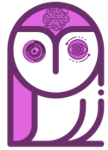MOOCs, MOOC Courses, or Massive Open Online Courses have become very popular in the past few years. MOOcs are courses that are delivered online, and that generally have an option that allows anybody to course them for free.
They are a great way to learn technical subjects, and have transformed the way many people obtain technical capacities, by becoming an easy, affordable, and very valid option for learning.
In this post we will try to answer all the questions you might have about Massive Open Online Courses. Lets go learners!
What are MOOCs?
As defined earlier, MOOCs are online courses, normally about technical subjects, that came to life as a way to provide everybody, no matter where in the world or what the specific financial situation, a way to learn about some of the hot and most desirable topics out there.
They remove the presencial characteristic of University courses, allowing the students to complete them 100% online: an internet connection is all you need to access a MOOC.
MOOCs usually consist of video lessons, readings like PDFs with the material, slides, or papers, assessments or tests, and normally also discussion forums where the students can engage and try to solve each others problems. It is the instructors of the course that act as the administrators of these forums, regulating the interactions and helping the students with problems they might have.
On the following link you can find Andrew’s Ng Machine Learning MOOC, supported by Stanford University: one of the most famous MOOCs in the world, on the Coursera Platform.
Also, you can find many MOOCs in our Online Courses section.
Who Makes MOOCs?
As their origin comes from academia, most MOOCs are made by Universities, like Stanford, Duke, MIT, or Harvard. Also, some top tech companies like Microsoft and Google have started creating MOOCs. These ones can seem a little bit promotional, as most of the content is covered using their tools like Google Cloud Platform of Azure Databricks, but it allows users to get familiar with them in an inexpensive manner, which is cool.
Where can I take MOOCs?
As MOOCs are online, in order for them to get the most widespread adoption, they are not enclosed in the web pages of the Universities or Companies that create them, but instead in the web pages of the top online learning sites like Coursera, or Udacity.
Other information about MOOCs
As sometimes they resemble university courses, MOOC courses can have specific start times. Maybe they can be coursed twice a year, once in each semester. This usually means that the teachers or creators of the MOOCs themselves correct the assessments, and actively engage with the students. This also usually means that the courses have a deadline, making the students have to work with a defined schedule that could be daily, or weekly.
Most times however, MOOCs are self paced: you pay for it, or audit it, coursing it for free (learn how to do this on Coursera here) and from there take as much time as you want to complete it. The duration of the MOOCs can vary a lot, going from 1 week to various months. Many MOOCs, in their documentation provide information about the aproximate time it takes to complete it with certain weekly/daily dedication.
Despite being able to course most of them for free, they do have some elements behind a paywall, like certificates and assigments sometimes: if you want these, you will have to pay. However, if you only want access to the material (video lectures and slides) you can course most of them for free without an issue.
Also, Coursera, edX, and Udacity, offer financial help for students to be able to take MOOCs with all the material and earn a certificate, so in case you need it, request it no doubt!
What can a MOOC give me?
MOOCs are a great way to increase your knowledge on all kinds of topics. Maybe you want to swtich carrer, go from being a salesman to a data scientists. Devouring a couple of MOOCs will take your knowledge from 0 to great.
If you want to increase your knowledge on certain topics, like Deep Learning for example, or Computer Visions, there are a loot of specific MOOC courses our there, like this Deep Learning Specisalization on Coursera.
Altough some people value certificates a lot, we think that the goal of MOOCs is to get students from anywhere in the world to learn about certain topics. This can be to land a job or just out of curiosity, but just the knowledge that a certain top course can provide is enough, without the certificate. In a work landscape, having a certificate or not wont make much of a difference, it is the skills that you learn from the MOOC that will differentiate you.
Watch the following video of a TED talk to learn what MOOCs are all about
Most popular Machine Learning MOOCs.
In our Machine Learning online courses section, we have many MOOC Courses to learn about this awesome technology, however, here you can find a couple that we still have not reviewed and included there, and that look preeeety good:
- Introduction to Probability and Data on Coursera, by Duke University.
- Machine Learning Foundations: A case study on Coursera, by University of Washington.
- CS321 Convolutional Neural Networks from Stanford.
- Learning from Data (Introductory Machine Learning) on edX by Caltech. (Also can be found here, with a more thorough description).
- Machine Learning for Undergratuates by UBC on Youtube.
- Machine Learning by Carnegie Mellon University.
- Deep Learning by Nando Freitas at Oxford, on Youtube.
As always, we hope that you have enjoy the article. Have a great day and thanks for reading How to Learn Machine Learning 🙂
Subscribe to our awesome newsletter to get the best content on your journey to learn Machine Learning, including some exclusive free goodies!

